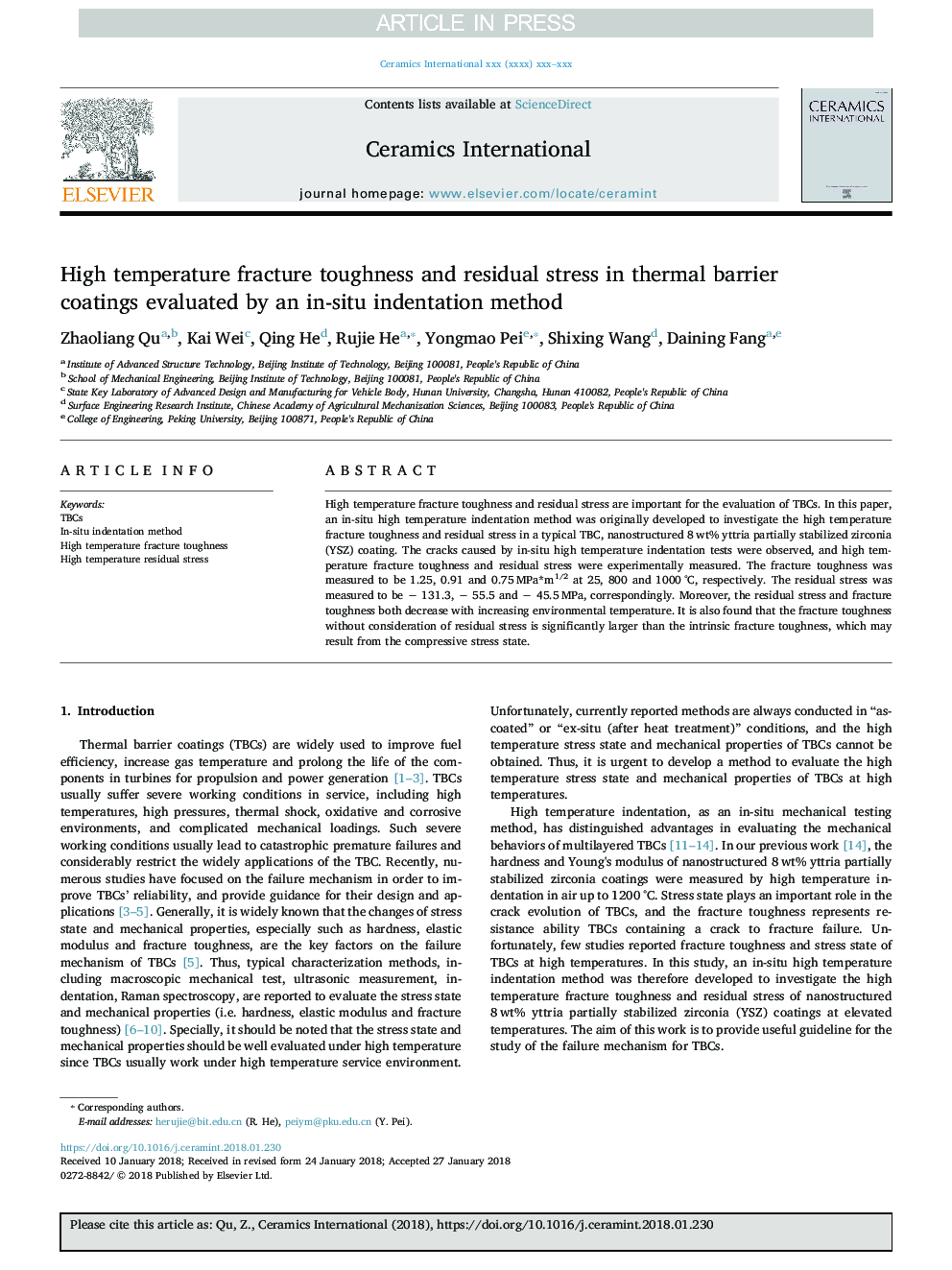| Article ID | Journal | Published Year | Pages | File Type |
|---|---|---|---|---|
| 7887789 | Ceramics International | 2018 | 4 Pages |
Abstract
High temperature fracture toughness and residual stress are important for the evaluation of TBCs. In this paper, an in-situ high temperature indentation method was originally developed to investigate the high temperature fracture toughness and residual stress in a typical TBC, nanostructured 8â¯wt% yttria partially stabilized zirconia (YSZ) coating. The cracks caused by in-situ high temperature indentation tests were observed, and high temperature fracture toughness and residual stress were experimentally measured. The fracture toughness was measured to be 1.25, 0.91 and 0.75â¯MPa*m1/2 at 25, 800 and 1000â¯Â°C, respectively. The residual stress was measured to be â 131.3, â 55.5 and â 45.5â¯MPa, correspondingly. Moreover, the residual stress and fracture toughness both decrease with increasing environmental temperature. It is also found that the fracture toughness without consideration of residual stress is significantly larger than the intrinsic fracture toughness, which may result from the compressive stress state.
Keywords
Related Topics
Physical Sciences and Engineering
Materials Science
Ceramics and Composites
Authors
Zhaoliang Qu, Kai Wei, Qing He, Rujie He, Yongmao Pei, Shixing Wang, Daining Fang,
